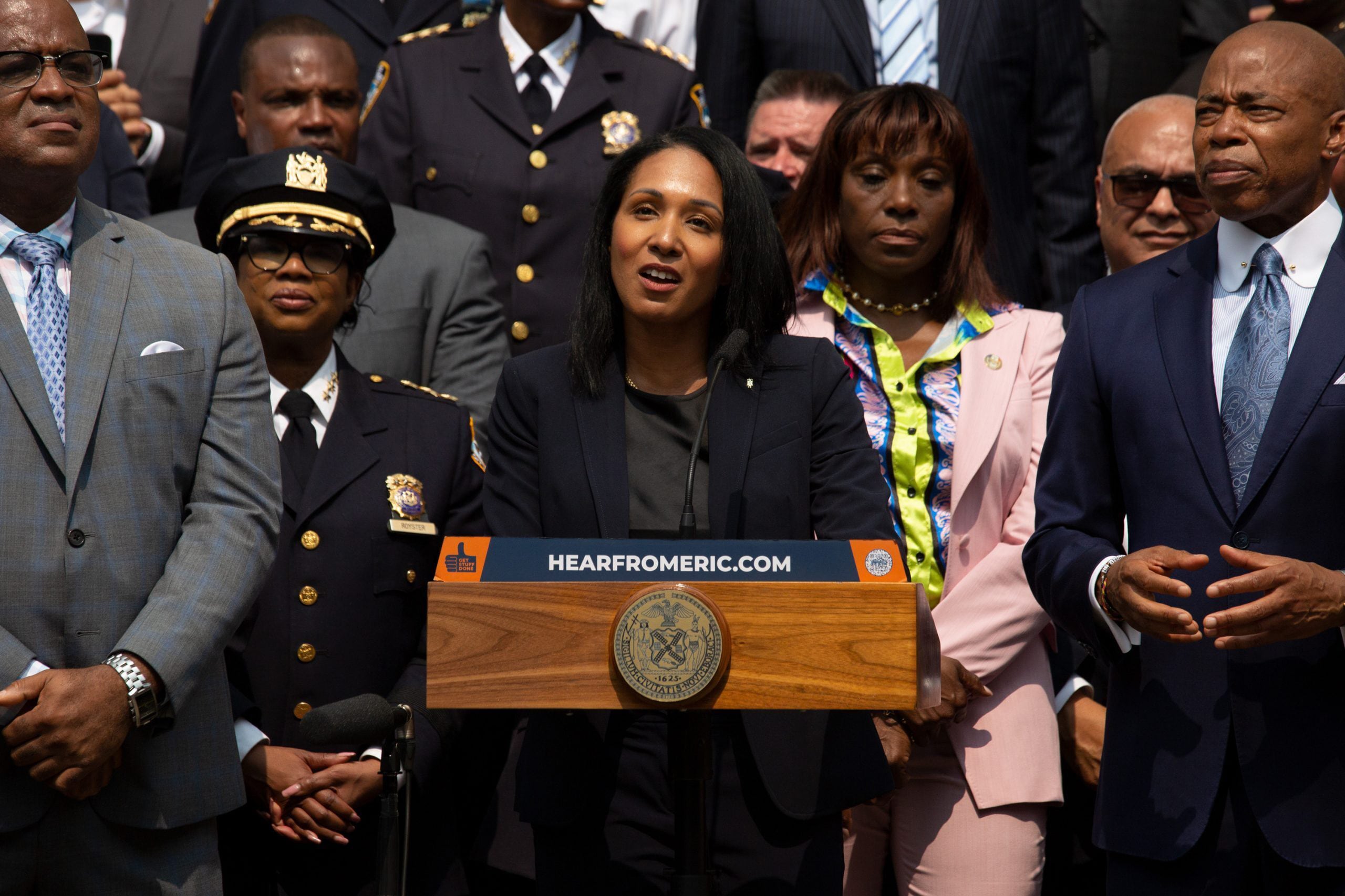This story was originally published on Aug. 28 by THE CITY. Sign up here to get the latest stories from THE CITY delivered to you each morning.
After considering shifting oversight of school safety agents to the office of Chief of Department John Chell, the NYPD is instead placing the division under the office of first deputy commissioner Tania Kinsella, department officials and a department source said.
The decision was finalized after THE CITY reported last week, based on multiple sources, that the department was moving the agents under Chief of Department John Chell.
The school safety division is currently under the Community Affairs Bureau, and the department’s initial plan to move it under Chell — who has been an architect of some of the department’s more aggressive policing tactics in recent years, including a surge in vehicle pursuits — drew criticism within hours.
Jake Martinez, deputy director of the New York Civil Liberties Union’s Education Policy Center, said in a statement released this past Friday that putting the division under the authority of NYPD brass “is a dangerous move that will hurt students and make schools less safe.”
A number of current and former NYPD officials told THE CITY it’s unusual for the office of the first deputy commissioner to oversee school safety operations because the office mostly deals with administrative issues.
But an NYPD spokesperson said the first deputy commissioner already oversees a number of operational units. The department said the move was structural and that it would yield better oversight of school safety agents.
“While the role and functions of school safety agents will remain the same, this organizational change will improve the School Safety Division’s ability to serve our children and schools safely and effectively,” an NYPD spokesperson said.
As THE CITY reported last week, the shift in oversight of school safety agents comes at a sensitive time for policing matters.
The administration of President Donald Trump is employing multiple tools to boost the rate of deportations of noncitizens — including people arrested for but not convicted of crimes, as well as, in some cases, minors.
The structural shift also comes as NYPD Commissioner Jessica Tisch and some of the city’s district attorneys have been advocating for a return to harsher penalties for teens ages 16 and 17 who commit violent crimes.
A state law passed in 2017 known as “Raise The Age” moved many cases of 16- and 17-year-olds to family court rather than criminal court, often yielding penalties short of jail time.
The administration of former Mayor Bill de Blasio had committed to moving school safety agents out of the NYPD entirely during the Black Lives Matter movement, and putting them under the authority of the Department of Education.
But the plan was never completed before de Blasio’s term ended in late 2021 and it was abandoned by the administration of Mayor Eric Adams.







